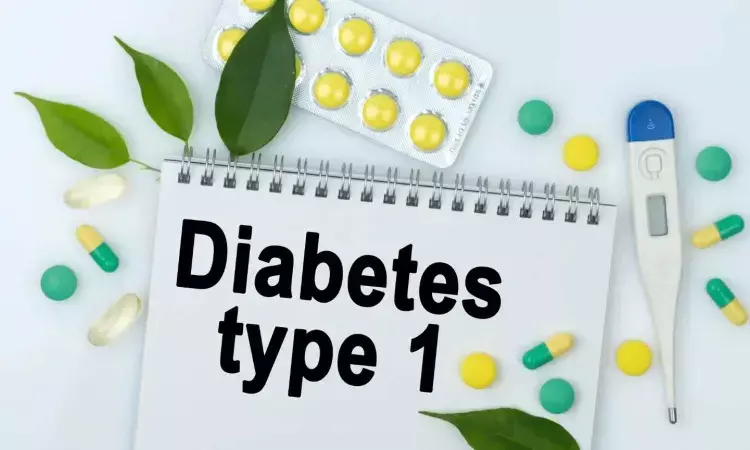- Home
- Medical news & Guidelines
- Anesthesiology
- Cardiology and CTVS
- Critical Care
- Dentistry
- Dermatology
- Diabetes and Endocrinology
- ENT
- Gastroenterology
- Medicine
- Nephrology
- Neurology
- Obstretics-Gynaecology
- Oncology
- Ophthalmology
- Orthopaedics
- Pediatrics-Neonatology
- Psychiatry
- Pulmonology
- Radiology
- Surgery
- Urology
- Laboratory Medicine
- Diet
- Nursing
- Paramedical
- Physiotherapy
- Health news
- Fact Check
- Bone Health Fact Check
- Brain Health Fact Check
- Cancer Related Fact Check
- Child Care Fact Check
- Dental and oral health fact check
- Diabetes and metabolic health fact check
- Diet and Nutrition Fact Check
- Eye and ENT Care Fact Check
- Fitness fact check
- Gut health fact check
- Heart health fact check
- Kidney health fact check
- Medical education fact check
- Men's health fact check
- Respiratory fact check
- Skin and hair care fact check
- Vaccine and Immunization fact check
- Women's health fact check
- AYUSH
- State News
- Andaman and Nicobar Islands
- Andhra Pradesh
- Arunachal Pradesh
- Assam
- Bihar
- Chandigarh
- Chattisgarh
- Dadra and Nagar Haveli
- Daman and Diu
- Delhi
- Goa
- Gujarat
- Haryana
- Himachal Pradesh
- Jammu & Kashmir
- Jharkhand
- Karnataka
- Kerala
- Ladakh
- Lakshadweep
- Madhya Pradesh
- Maharashtra
- Manipur
- Meghalaya
- Mizoram
- Nagaland
- Odisha
- Puducherry
- Punjab
- Rajasthan
- Sikkim
- Tamil Nadu
- Telangana
- Tripura
- Uttar Pradesh
- Uttrakhand
- West Bengal
- Medical Education
- Industry
Type 1 diabetes linked to early onset of puberty among boys and girls

Puberty in both girls and boys with type 1 diabetes has shifted forward over the last two decades, according to research presented at the 61st Annual European Society for Paediatric Endocrinology Meeting in The Hague. Additionally longer duration of diabetes, bigger waistlines, and lower blood sugar levels were associated with even earlier puberty onset. The findings of this large-scale study highlight a close relationship between type 1 diabetes and puberty onset and the utmost importance of managing diabetes and weight appropriately during puberty.
Type 1 diabetes is the most common form of diabetes in children. Puberty brings about hormonal changes that can impact metabolic control in diabetes, for instance the body can become more resistant to insulin, increasing blood sugar levels. In recent years, many studies have reported earlier puberty onset across the world, particularly in healthy girls. However, diabetes is known to be associated with a delay of pubertal onset in children.
In this study, researchers from Germany analysed data on the onset of puberty and pubic hair development of 65,518 children aged 6-18 years, all diagnosed with type 1 diabetes between 2000 and 2021, from the German DPV registry. They found that over two decades both girls and boys are going through puberty at about six months earlier than before. This result was more evident in children who had diabetes longer, were overweight, or had lower blood sugar levels.
“While the findings for girls align with previous research, our study is groundbreaking in revealing a similar trend in boys with type 1 diabetes for the first time,” said lead researcher Dr Felix Reschke from the Children’s Hospital Auf Der Bult in Hanover. “As a result, we now anticipate that the average onset of puberty in boys with diabetes will occur just before the age of 12 (11.98 years).”
He adds: “Our study demonstrates that children with diabetes are also experiencing this trend towards an earlier puberty, which is already known in healthy girls, but not evident in boys yet. It's also important to note that previous research indicated that type 1 diabetes may lead to delayed pubertal onset, thus our study provides new insights into the complex relationship between type 1 diabetes and puberty onset.”
Many factors that alter puberty in children, such as body weight, disease and genetics, have been associated with early puberty. However, early puberty often does not have an obvious cause. “Our research not only sheds light on the evolving landscape of puberty timing in children with type 1 diabetes but also underscores the intricate interplay between metabolic factors, hormones, and environmental influences,” said Dr Reschke. “Further investigations are warranted to explore these dynamics comprehensively and inform targeted interventions for this vulnerable population.”
The researchers will now compare this trend of an early onset of puberty with children without chronic diseases and delve deeper into understanding the underlying causes. “It is crucial for both society and pediatricians to recognise this trend, and if necessary, we may need to reevaluate and adjust our clinical approaches to examining premature puberty accordingly,” said Dr Reschke.
Dr Kamal Kant Kohli-MBBS, DTCD- a chest specialist with more than 30 years of practice and a flair for writing clinical articles, Dr Kamal Kant Kohli joined Medical Dialogues as a Chief Editor of Medical News. Besides writing articles, as an editor, he proofreads and verifies all the medical content published on Medical Dialogues including those coming from journals, studies,medical conferences,guidelines etc. Email: drkohli@medicaldialogues.in. Contact no. 011-43720751


